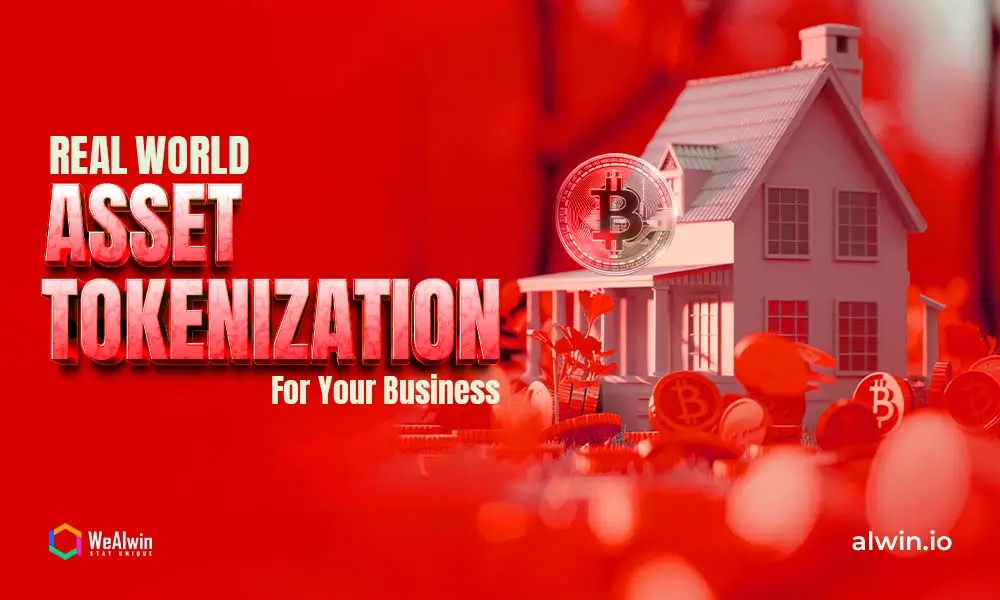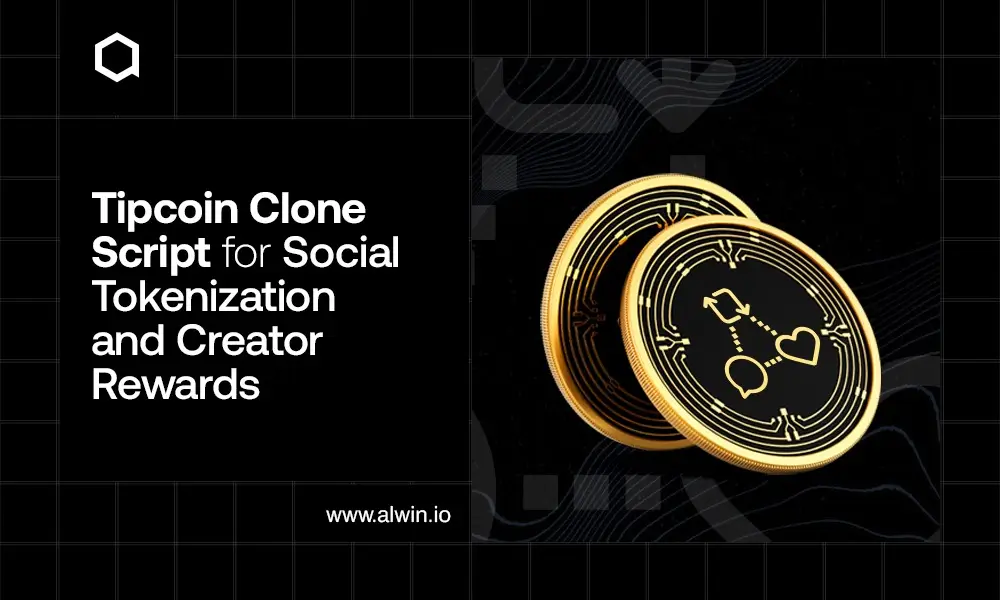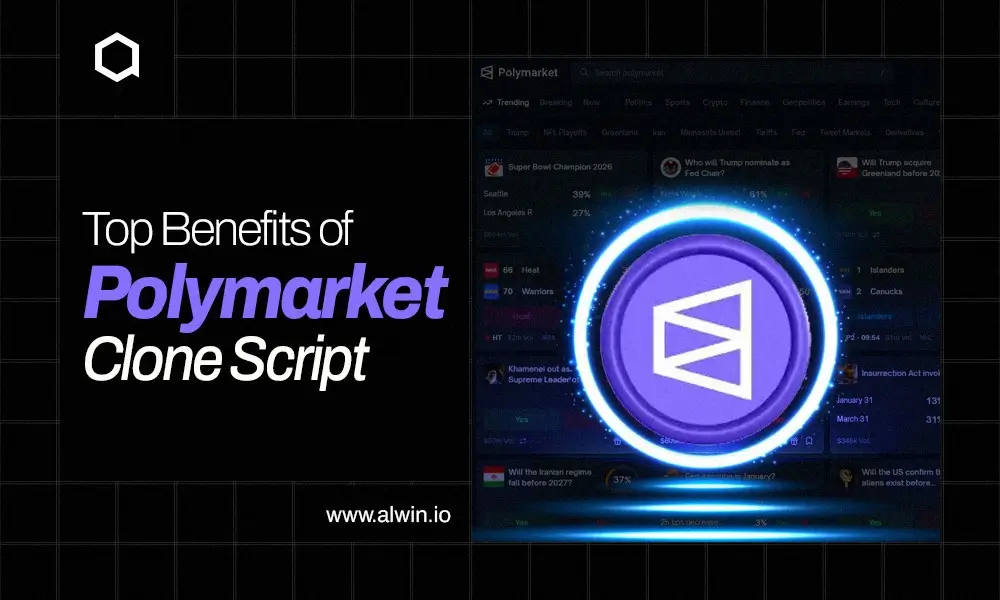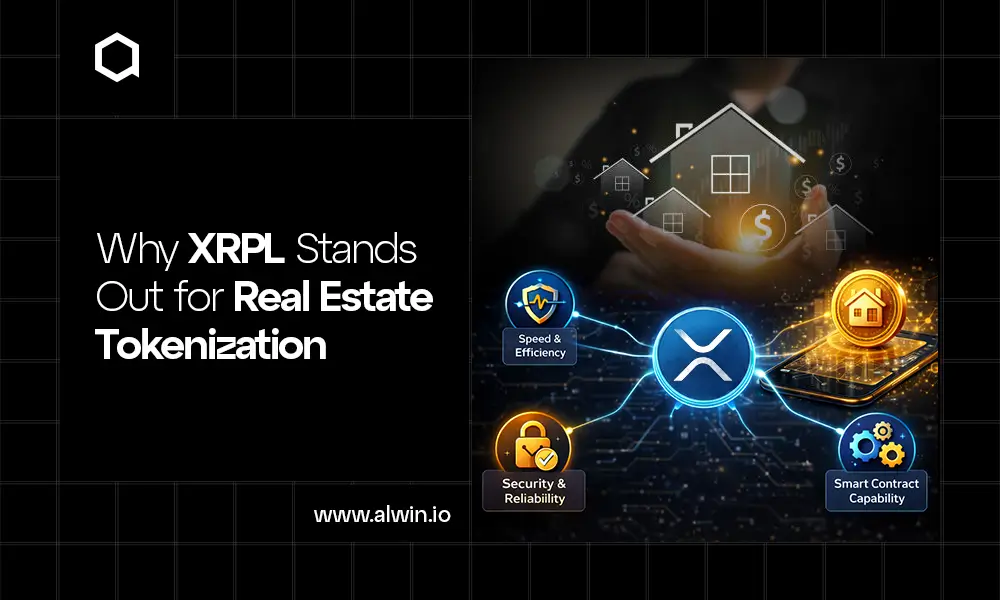Imagine turning things like real estate, art, or other things into digital tokens that can be traded, sold, or owned like cryptocurrencies. This new idea called Real World Asset Tokenization is changing how businesses think about owning and investing.
The idea of tokenizing real-world assets came from the blockchain revolution, which started to take off in the late 2000s. As blockchain technology developed, it became clear that it could also be used to digitize and fractionate tangible assets. In 2024, more than $3 billion worth of assets have been tokenized globally. This trend is giving businesses of all sizes new ways to manage and invest in assets.
In the future, more people will use Real World Asset Tokenization. As businesses and investors become more familiar with blockchain technology, the appeal of tokenizing physical assets is becoming clearer. Asset tokenization is a good option for a lot of different industries, such as real estate and fine art.
What is Real World Asset Tokenization?
The process of turning physical assets, like real estate, commodities, or art, into digital tokens on a blockchain. These tokens exemplify ownership or a stake in the physical asset and are used to make transactions easier and more secure, fractional ownership, and increased liquidity. By using digital representations of real things, businesses and investors can trade them like cryptocurrencies. This gives them more chances to invest and access to global markets. This idea connects the physical and digital worlds, making it easier to manage things.
Experts think that asset tokenization will become a trillion-dollar market by 2030. This increase will happen because the rules are clearer, technology is getting better, and people want to invest more easily. As more companies and investors understand the benefits of this new way of investing, Real World Asset Tokenization will become a common way of investing money. This will change how we think about owning and investing in the digital age.
Business Benefits of Real-World Asset Tokenization
Real-world asset tokenization has several compelling benefits that make it easier to manage and sell things.
Enhanced Liquidity
Real-world asset tokenization improves liquidity by turning physical assets into digital tokens.This allows owners to sell part of their assets instead of the whole asset, which makes assets like real estate or fine art more accessible to a wider range of investors.
Increased Accessibility
Tokenization makes it possible to trade assets around the world. This makes it easier for people from all over the world to invest and make their portfolios more diverse.
Cost Efficiency and Streamlined Processes
Blockchain technology makes sure that every transaction is recorded forever. This keeps track of who owns something and makes it less likely to be cheated. This system makes investors, buyers, and regulators trust each other.
Global Reach and Inclusivity
Tokenization makes transactions faster and more cost-efficient. This process makes it easier to transfer and trade assets, which reduces transaction costs and makes trading faster.
How to tokenize the Real-World Assets?
Accurately representing and securely managing tangible assets in the digital realm is the goal of tokenizing real-world possessions. Below is a simplified guide to how the process works.
Asset Identification and Valuation
The first step is to identify the asset that will be tokenized, such as real estate, artwork, commodities, or other valuable items. After finding something, it goes through a process to figure out how much it's worth. This will help to decide how much the tokens that represent will cost.
Legal Structuring and Compliance
Before an asset can be tokenized, all legal and regulatory requirements must be met. This means making the asset look like it's legal in the place where it's located and where the tokens will be sold. This step might involve writing agreements that explain what token owners can do.
Digital Token Creation
The next step after legal considerations are addressed is to create digital tokens that represent the asset. A blockchain platform usually houses these tokens, guaranteeing openness and safety. Partial ownership is enabled by the fraction of the assets' value represented by each token.
Smart Contract Development
Tokenization involves smart contracts. Transfers, dividend payments and other ownership rights are automated by self-executing contracts with the terms of the agreement directly written into code. The extra layer of security provided by smart contracts is that transactions only occur when certain conditions are met.
Token Offering and Distribution
The token sale is the next step after the token creation and smart contracts are in place. Depending on the asset type and regulatory environment, the tokens can be offered to investors through a security token offering or another similar method. A share of the underlying asset can be acquired by investors through purchasing tokens.
Secondary Market Trading
Secondary markets can be used to trade the tokens after they are distributed. Investors can buy and sell their tokenized assets, providing liquidity and flexibility. Transparency and trust are maintained by the immutability of all transactions recorded by blockchain technology.
Even after tokenization, the asset still requires ongoing care. Maintaining the physical asset, ensuring compliance with regulations, and providing regular reports to token holders are all included. Real-time updates and maintaining trust among stakeholders are easier with the transparency features of the blockchain.
However, the advantages it offers, including enhanced liquidity, accessibility, and security, make it a compelling option for asset owners and investors alike.
Real-World Use Cases of Asset Tokenization
The transformation of physical assets into digital tokens on a blockchain is changing various industries. Investment, trading, and ownership can be opened up by this innovation. Some compelling uses can be found below.
Real Estate Tokenization
The tokenization of real estate assets allows investors to acquire a portion of a property without having to acquire the entire asset. Real estate investment gets democratized by this, making it more accessible to more people. Each token represents a small share of ownership in a commercial building worth millions. Investors can trade these tokens on blockchain platforms, which offer liquidity.
Art and Collectibles
Art and exclusive collectibles, often reserved for affluent individuals, can be tokenized to permit partial ownership. Multiple investors can own a piece of an expensive painting or rare collectible if they divide it into several tokens. Allowing tokens to be traded on the open market enhances accessibility to high-value items and also enhances liquidity.
Commodities
Gold, silver, and oil can be tokenized to represent ownership. It's possible to split up a gold bar into smaller pieces, so folks can get a piece of it instead of buying it whole. The ease of trading of these tokens makes investing in commodities more flexible.
Intellectual Property
Intellectual property can also be tokenized, including patents, trademarks, and copyrights. This permits creators and owners to offer shares of their intellectual property to investors, who will then receive royalties or other income from the asset. For example, a musician could tokenize the rights to a song, allowing fans to invest and share in the revenue from streaming or licensing.
Agriculture
Farmers can raise capital from a wider pool of investors by tokenizing agricultural assets, such as farmland or livestock. Tokens representing a share of the farm's output or the value of the land can be purchased by investors. Farmers get the cash they need, and investors can mix up their portfolios with farm stuff.
Sports Teams and Athletes
Tokenization is entering the sports industry, where teams and athletes can tokenize future revenue streams, such as ticket sales, merchandise, or sponsorship deals. A new way for sports fans to invest and engage with their passions is created by the ability to buy tokens to own a piece of their favorite team's future earnings.
Renewable Energy Projects
Tokenization allows investors to purchase tokens representing a share of the energy produced or revenue generated by a wind farm or solar project. A new investment opportunity for those interested in green energy is provided by this, as well as supporting sustainable initiatives.
Private Equity and Venture Capital
Large capital commitments are required for private equity funds and venture capital investments. A wider range of investors can participate by tokenizing these investments. Private equity investments can be made more accessible by trading tokens on secondary markets, providing liquidity and making private equity investments more accessible.
Infrastructure Projects
Tokenizing large infrastructure projects can raise funds from a diverse pool of investors. The holders of tokens can share in the profits generated by the project, such as tolls or service charges, ensuring a return on their investment and supporting vital public amenities.
Crowdfunding
Projects can issue tokens in exchange for investment, which is transforming the crowdfunding space. A tangible stake in the project's success is given to backers by this method, possibly leading to more involvement and financial rewards. Tokenization can be used by startups and small businesses to raise funds more efficiently and transparently.
These use cases show how asset tokenization can be used in many different industries. Tokenization is changing traditional markets and opening up new opportunities for investors and asset owners alike.
How Much does It Cost to Build an Asset Tokenization Platform?
There are several factors that can affect the cost of building an asset tokenization platform, including complexity, features, type of assets being tokenized, and level of customization required. The main factors that affect the price are listed below.
A simple tokenization platform with essential features might cost between $30,000 and $50,000 A user interface, smart contracts, and basic token creation are all included. The cost of an advanced platform with additional features such as advanced security measures, compliance modules, and integration with other blockchain networks can range from $50,000 to $150,000.
The price will go up if you want a platform that's tailored to your business. The development time and expense can be inflated by unique features like custom token standards, specific regulatory compliance, or bespoke smart contracts.
The choice of blockchain technology (Ethereum, Hyperledger, Binance Smart Chain, etc.) and development tools can also affect the price. There are some blockchain networks that require more expensive development or maintenance. Implementing high-end security features such as multi-signature wallets, encryption, and anti-fraud systems can add to the overall cost, but they are essential for protecting your platform and its users.
Hiring a top-tier blockchain development company in regions with higher living costs (e.g., North America or Europe) will generally be more expensive than working with teams in regions with lower living costs (e.g., Asia). These are rough estimates, and the actual cost can vary depending on the specific requirements of your project. It's advisable to consult with a Blockchain Development Company like WeAlwin Technologies to get a detailed quote tailored to your needs.
How Can WeAlwin Help you in Asset Tokenization Platform Development?
A robust and effective asset tokenization platform can be built with WeAlwin Technologies. We can help you by:
We start with a deep understanding of your specific needs and the assets you want to tokenize. Our team of blockchain experts will guide you through the process, helping you identify the best strategies and technologies to achieve your goals.
Our tailored asset tokenization platform development will ensure your asset tokenization is secure, scalable, and compliant with industry standards. We will develop a solution that fits your requirements, whether you need a public or private blockchain.
Custom tokens that represent your real-world assets can be created by us. If you already have existing systems in place, we can seamlessly integrate your new tokenization platform. The new capabilities of tokenization ensure that your operations continue uninterrupted.
Our expertise enables you to tokenize assets and connect with investors from all over the world. Opportunities for both you and your investors can be provided by our platform development services.
WeAlwin Technologies is a team dedicated to your success and innovation. A world of possibilities for your business can be opened up by transforming your assets into digital tokens.



